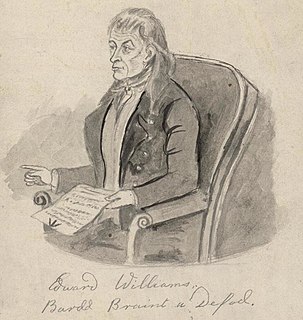A Quote by Leonardo da Vinci
Related Quotes
Despite popular theories, I believe people fall in love based not on good looks or fate but on knowledge. Either they are amazed by something a beloved knows that they themselves do not know; or they discover a common rare knowledge; or they can supply knowledge to someone who's lacking. Hasn't everyone found a strange ignorance in someone beguiling? . . .Nowadays, trendy librarians, wanting to be important, say, Knowledge is power. I know better. Knowledge is love.
The Second Rule is that the greatest harm can result from the best intentions. It sounds a paradox, but kindness and good intentions can be an insidious path to destruction. Sometimes doing what seems right is wrong, and can cause harm. The only counter to it is knowledge, wisdom, forethought, and understanding the First Rule. Even then, that is not always enough.
I fear that I will do something to bring harm to those I love," Froi said. "So I follow their rules to ensure that I won't." "But what if you bring harm or fail to protect those you don't know? Or don't love? Will you care as much?" "Probably not." "Then choose another bond. One written by yourself. Because it is what you do for strangers that counts in the end.
[M]y conception of liberty does not permit an individual citizen or a group of citizens to commit acts of depredation against nature in such a way as to harm their neighbors and especially to harm the future generations of Americans. If many years ago we had had the necessary knowledge, and especially the necessary willingness on the part of the Federal Government, we would have saved a sum, a sum of money which has cost the taxpayers of America two billion dollars.
Grant, Goddess, thy protection, And in protection, strength, And in strength, understanding, And in understanding, knowledge, And in knowledge the knowledge of justice, And in the knowledge of justice, the love of it, And in that love, the love of all existences, And in the love of all existences, the love of Goddess and all goodness.
And finally remember that nothing harms him who is really a citizen, which does not harm the state; nor yet does anything harm the state which does not harm law [order]; and of these things which are called misfortunes not one harms law. What then does not harm law does not harm either state or citizen.








































